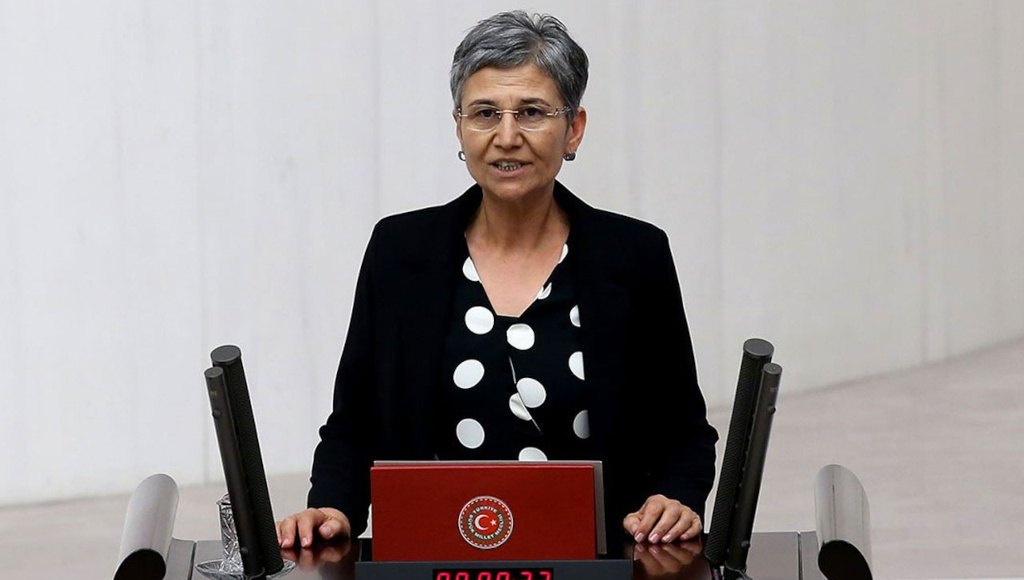Turkey’s Constitutional Court has ruled by a majority vote that Kurdish politician Leyla Güven’s re-arrest despite her election to parliament in the 2018 general election violated her right to liberty and security, the Mezopotamya news agency reported on Wednesday.
Güven, the then co-chairperson of the Democratic Society Congress (DTK) who was detained on Jan. 22, 2018 over her critical statements about a Turkish military operation in northern Syria, was jailed by the Diyarbakır 9th High Criminal Court after spending nine days in police custody.
Although the Diyarbakır court ruled for Güven’s release on June 29 due to the fact that she was elected to parliament in the June 24 general election from the ranks of the pro-Kurdish Peoples’ Democratic Party (HDP), a decision was made for her re-arrest due to an objection by the prosecutor to her release.
According to Mezopotamya, the Constitutional Court’s general assembly on Wednesday ruled by 11 votes to four that Güven’s re-arrest in 2018 amounted to a violation of her rights, ordering the Turkish government to pay her TL 67,500 ($3,632) in damages.
They said in the decision that the re-arrest violated Güven’s right to liberty and security guaranteed in Article 19 of the Turkish Constitution, adding that it is “incompatible” with Article 83 of the constitution concerning the immunity of parliamentarians.
Güven’s lawyer Reyhan Yalçındağ told Mezopotamya that the top court’s decision had its shortcomings and that it disregarded Kurdish politician’s freedom of expression.
“We see in this decision that when the applicant is a Kurdish politician, [or] from the HDP, the Constitutional Court acts very timidly, making decisions contrary to its own case law and that of the European Court of Human Rights or making incomplete assessments, instead of making evaluations on as many rights as possible,” Yalçındağ added.
Ousted from the Turkish Parliament in June 2020, Güven is serving a prison sentence of 22 years, three months and an additional five years as a result of two separate convictions on terrorism-related charges and has been behind bars since December 2020.
She is also currently facing up to 43 years in prison on charges of disseminating terrorist propaganda in her social media posts and four speeches for the outlawed Kurdistan Workers’ Party (PKK), recognized as a terrorist organization by Turkey and much of the international community and which has been waging a bloody campaign in Turkey’s Southeast since 1984.
The ruling Justice and Development Party (AKP) increased its crackdown on Kurds, especially after the collapse of Ankara’s reconciliation process with the outlawed PKK in 2015.



